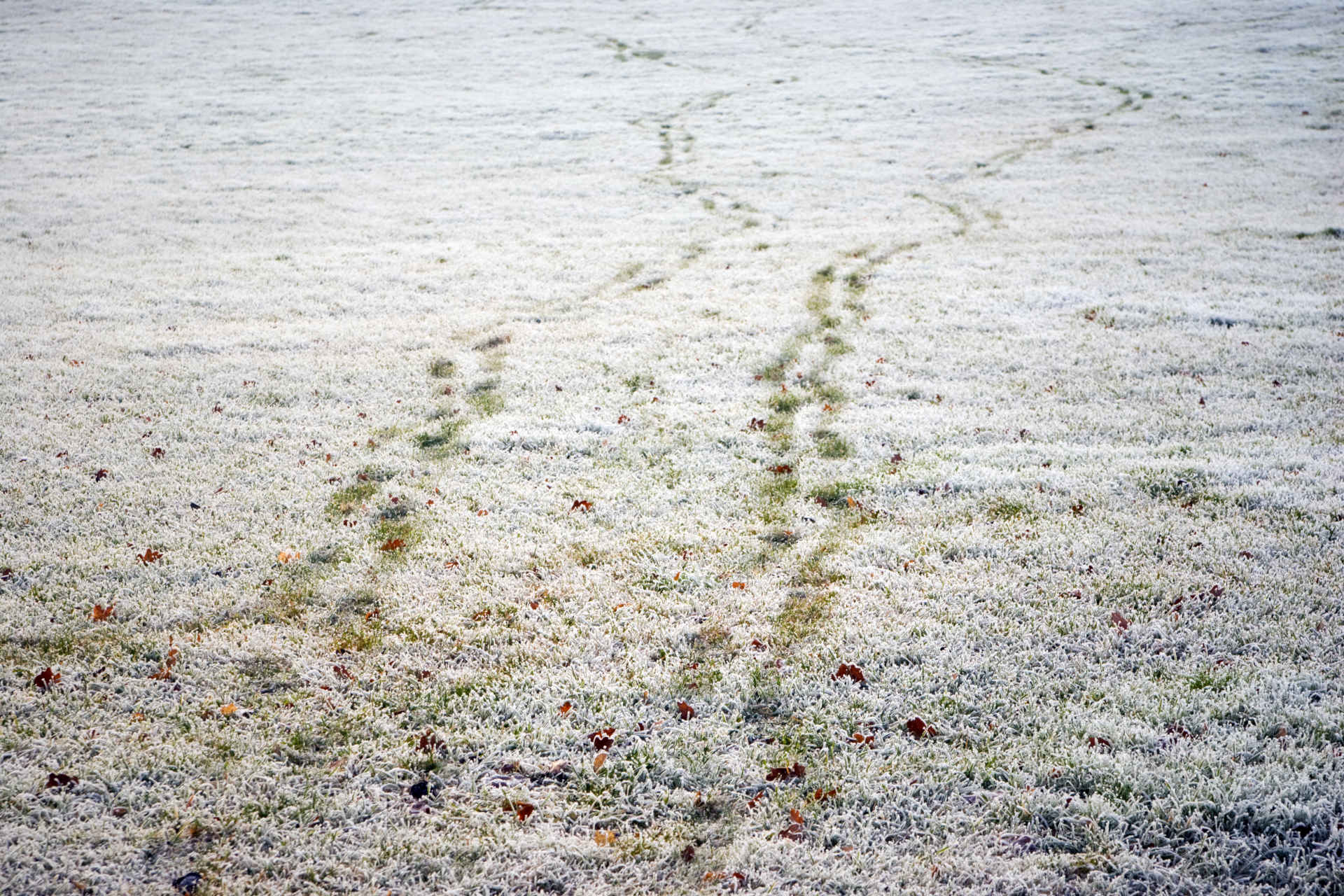Frost Damage On Cool Season Lawns

A Frosty Lawn Can Be Beautiful!
You wake up Saturday morning. As you wander into the kitchen to make that first cup of coffee, you glance out the window. Outside, the world is a glare of frosty brilliance. Beautiful! The trees look as though they are shimmering! The lawn looks as though it has been sugar coated! It is mornings like this that make many love the winter months. Cool Season grasses are built to withstand this type of weather. They have adapted to survive long periods of cold weather and the frost and snow that comes with it. But all that beauty could lead to frost damage.Frost Makes Turf Susceptible To Lasting Damage.
While a frosty lawn may be beautiful, it is also sensitive. Inside the blades of grass, water has frozen within the cells of the blade. Walking or driving a machine across this frozen turf can cause damage to the tissue of the blade.Any activity on the lawn while it is frosty, such as walking on it or mowing it, can break the grass blades. When a heavy object presses on frozen blades, the expanded water molecules slice through the grass and cause significant cellular damage. Quite often during this time of the year you will see golf courses with frost delays or sports fields where managers request no traffic on frosted turf.
 How to Minimize the Effects of Frost
How to Minimize the Effects of Frost
If your lawn does freeze and you need to walk on it or mow it, consider waiting until the sun is high enough to melt the frost. You can see the results of the damage when the blades produce a white or beige hue from being crushed along with the icy frost. The lawn will recover eventually, but it might not fully bounce back until the following spring.
If you can’t prevent people from stepping on the frosted grass, here are a few things you can do to give your grass its best chance of fighting the frost:
Protect grass crowns by leaving the blade length longer when mowing.
Don’t mow your turf right before an expected frost. Mowing can cause damage to the turf and may leave it more susceptible to frost damage.
A dedicated lawn application plan will help keep your lawn healthy, and boost its resistance to damage.